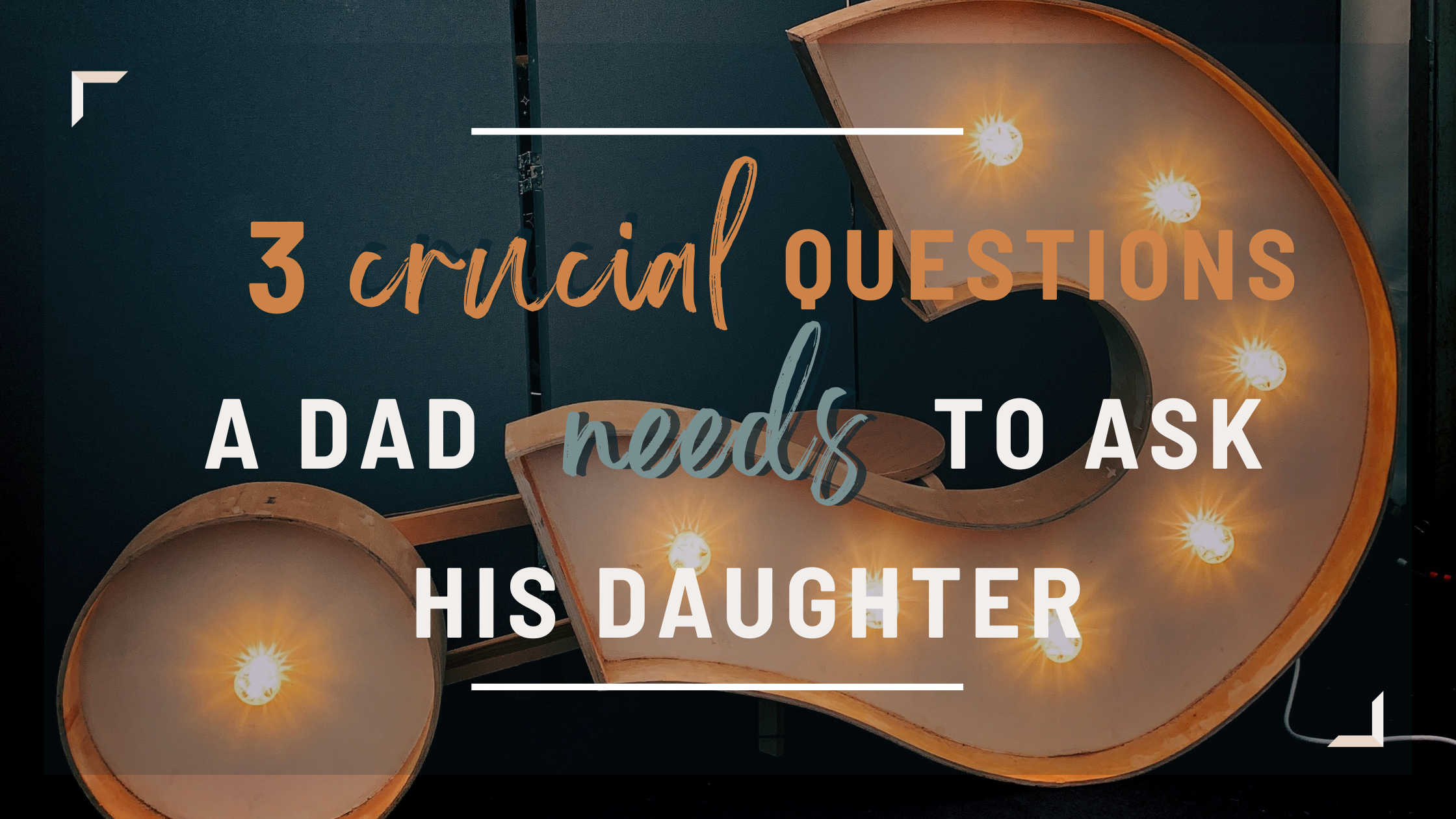You're Not Wearing THAT, Are You?
Michelle Watson
When dads ask me questions about how to be a better parent to their daughters, the scenarios range from how to handle blue hair to short dresses to low cut shirts to tight pants. There’s nothing more horrifying for a dad than to see his daughter heading out to face the world in something that shows way too much booty (or any body part, for that matter!)
One such thought-provoking question was posed to me when I spoke to a group of men who had gathered early one Friday morning at their kids’ school for an event called Dads and Donuts (a monthly forum where dads came to the campus, listened to a speaker, and connected with each other…all while being “bribed” by a plethora of free donuts!)
Grant spoke up first and said,
“My daughter is in 7th grade and we got into it just this morning. She was heading out the door to school when I caught a glimpse of what she was wearing. There was absolutely no way I was okay seeing her in an outfit that was clinging to her body and showing that much skin. I told her she couldn’t wear it, and of course, the sparks flew. My question to you is: How could I have handled that situation differently?”
Right then, with every dad staring at me, waiting for the “magic answer,” I realized that they were all commiserating with him and feeling his pain. They all knew he needed an answer that would fix the problem…today. With that reality in mind, I responded by saying,
“My guess is that once your daughter was upset with you, the whole intense interaction between you escalated, which caused her mom to jump in to comfort your daughter, then leading mom to be angry with you because they were your comments that led to her daughter crying and it was your fault. So not only was your daughter upset with you, but now mom was too.”
It was then that Grant blurted out, “Were you at our house this morning?!”, prompting laughter from all the guys, which I heard as the incredible sound of communal support and commiseration.
I took a breath and continued,
“The first thought that comes to my mind is that it’s never a good idea to have a confrontation when your daughter is on her way OUT the door. She had probably already put her outfit together the night before and had matched her makeup and her hair to coordinate with her outfit. And now you wanted her to change it all in a matter of minutes. There is no way that we as girls can change course that fast, especially when it comes to our clothes.
It was then and there that Grant’s look of distress immediately turned to a relieved smile. “That would have been really good to have known this morning!”
I realize that I don’t have all the answers about how to be a dad to a daughter, but having been a teenage girl, I responded to this dad out of how I wished my own dad had responded to me when I was her age. I do think it’s easy for dads to unnecessarily pull “the power card” with their maturing daughters when in the long run that stance isn’t always helpful in areas that aren’t about life or death.
Instead, I encourage you dads to work at listening to your daughter’s point of view on these kinds of tricky issues because the truth is that she’ll be out of your house before you know it and then she’ll be making decisions on her own. You may have to meet her halfway and concede sometimes. If you only tell her what you think and rule with a heavy hand (e.g., “No daughter of mine is going out of the house looking like THAT!"), she won’t learn HOW to think and make good decisions on her own if you always make them for her.
I know you’re trying to protect her and that’s awesome. But truthfully, it’s more about HOW you navigate the situation with her than anything. It’s about your tone of voice and body language that will make or break the conversation (and timing, of course). Come to her with a calm stance and not anger. Approach her the way you’d want your boss or colleague to approach you---with respect. Treat her the way you want to be treated.
That, my friend, is the best way to prepare your daughter for adulthood.
So how about ending with an action step today. Since this blog is about the clothes your daughter wears, what if you were to surprise her by telling her that you want to take her to the store for no particular reason and let her pick out one new item of clothing! I assure you that she’ll always remember that event with you (and that item) for the rest of her life.
Then while you’re at the store with her, she’ll be choosing something that has a memory of you tied to it. And when she wears it out of the house, you can be the first one to smile, wink at her, and say, “You’re wearing THAT today? You, my dear, look beautiful!”























